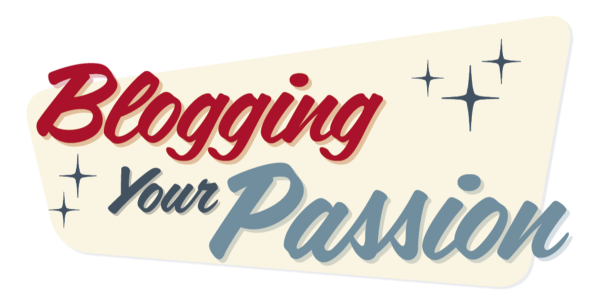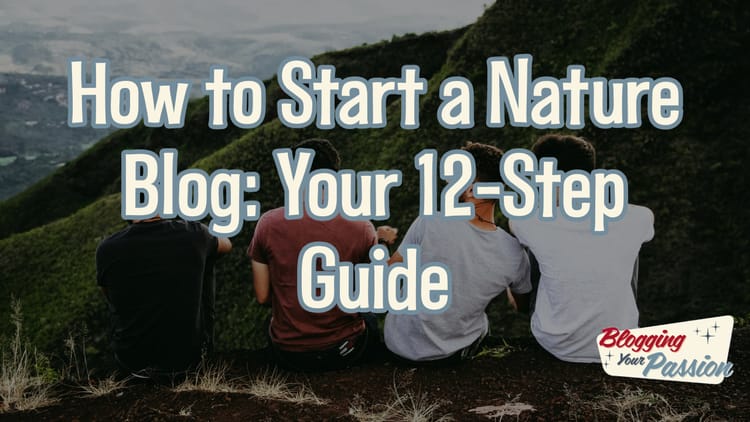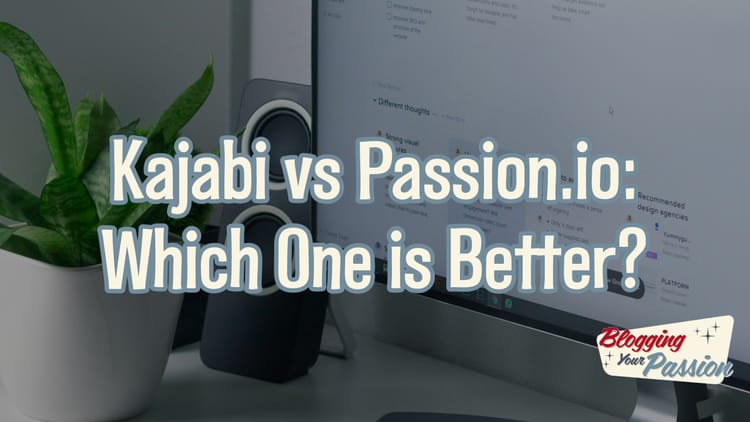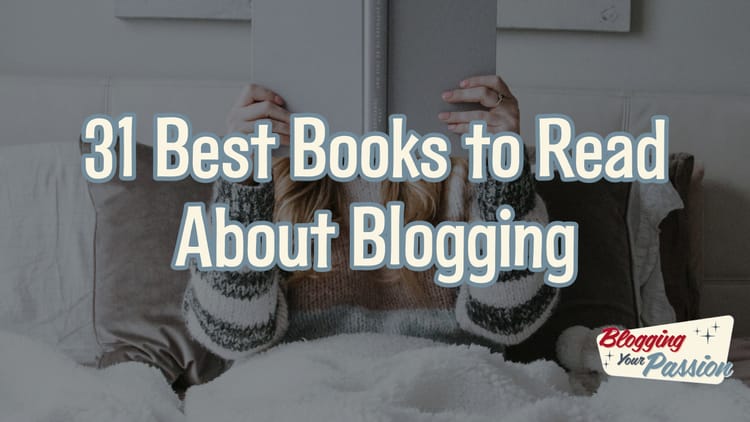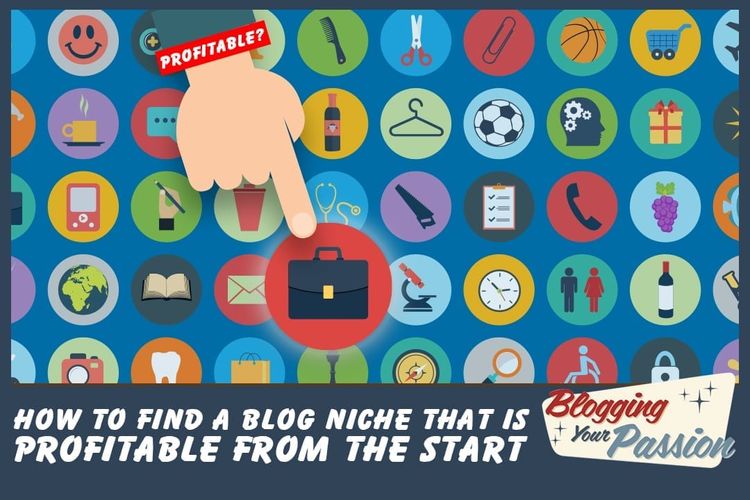How to Start a Book Blog (2024): A Comprehensive Guide
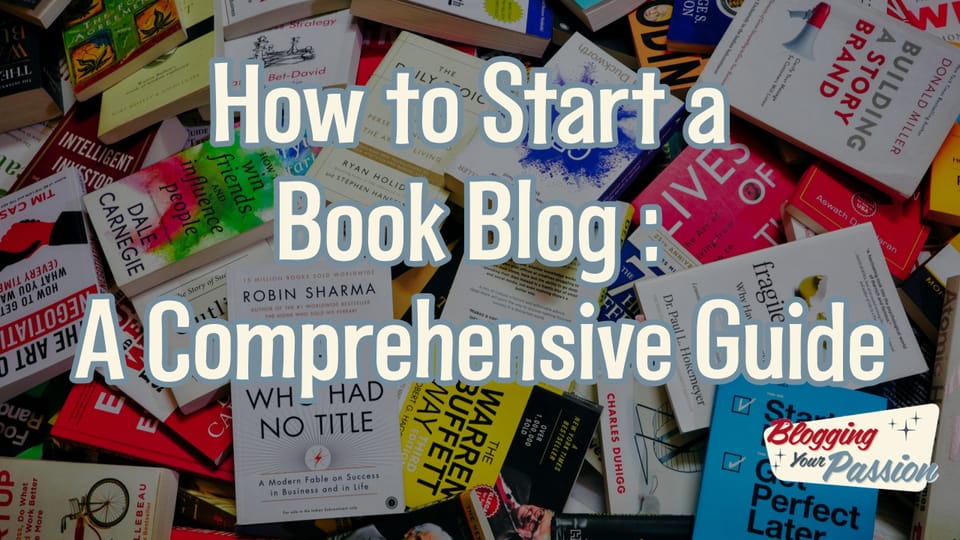
So, you're thinking about starting a book blog?
Well, you've come to the right place.
In this article, I'll be sharing my personal tips and experiences on how to get started with your own book blog.
We'll cover everything from finding your niche and building your online presence to creating engaging content and growing your readership.
So, let's dive right in and begin this exciting journey together, shall we?
Table of Contents (click to expand)
Key Takeaways
- Choose a book niche based on your expertise and interests.
- Develop your own writing style and voice.
- Pick a domain name that reflects your blog's theme and is easy to remember.
- Consistently post engaging content reflecting a passion for books.
What is book blogging?
So, you're probably wondering what exactly book blogging is. Well, let me break it down for you.
Book blogging is when someone creates a website or a blog dedicated to all things books. It's a space where individuals like me can share their love for reading and connect with others who share the same passion.
As a book blogger, one of the main things I do is write book reviews. I read a variety of books and then share my thoughts and opinions about them on my blog. This helps my target audience, fellow book lovers, discover new books and make informed decisions about what to read next.
But book blogging is not just about writing reviews. It also involves optimizing your blog for search engines so that more people can find your content. This is called search engine optimization (SEO). It's important to use relevant keywords and tags to increase visibility and attract more readers to your blog.
In addition to that, book blogging also includes sharing insights about the writing process. I often write about the author's writing style, character development, and plot structure, giving my readers a deeper understanding of the book.
Overall, book blogging is a wonderful way to connect with other bookworms, share your thoughts, and contribute to the book community. It's a space where we can all belong and celebrate our love for books together.
Step 1. Choose Your Book Niche
To choose your niche and develop your voice for your new blog, you'll need to identify what makes you unique and what topics you're passionate about.
Book blogging is a wonderful way to connect with other book enthusiasts and share your love for literature. When it comes to selecting a specific genre or type of book to focus on, it's important to consider your own interests and expertise.
What genres do you find yourself gravitating towards? Is there a particular type of book that you can't get enough of? Your passion for a specific genre will shine through in your writing, and it will attract readers who share your love for that genre.
In addition to choosing a specific genre, it's also important to develop your own writing style and voice. Your writing style is what sets you apart from other book bloggers. Are you more formal and analytical in your approach, or do you prefer a conversational and casual tone?
Experiment with different writing styles and find the one that feels most authentic to you. Remember, the key to a successful book blog is to be true to yourself and your passions. Embrace what makes you unique, and let your enthusiasm for books shine through.
Step 2. Build Your Online Platform
When it comes to building your online platform, there are two key points to consider: picking the right domain name and setting up your key pages.
Your domain name is essentially your online address. It's important to choose one that is easy to remember and reflects your brand or niche.
Setting up your key pages is crucial for providing essential information to your audience and establishing credibility. These pages include your homepage, about page, and contact page.
Taking the time to carefully select a domain name and set up your key pages will greatly contribute to the success of your online platform.
Pick the Right Domain Name
Choose a domain name that reflects your book blog's theme and resonates with your target audience. Your domain name is like the address of your online home, so it's important to make it inviting and easy to remember.
Here are a few tips to help you pick the right domain name for your own book blog:
- Make it relevant: Your domain name should clearly convey the focus of your blog. Think about keywords related to the book industry that you can incorporate.
- Keep it short and simple: Long and complicated domain names are hard to remember and can be a hassle to type. Aim for something concise and easy to spell.
- Consider search engines: Optimize your domain name for search engines by including relevant keywords. This will help your blog posts rank higher in search results and attract more readers.
Set Up Your Key Pages
Once you've decided on your domain name, it's time to set up the key pages of your book blog.
Creating a welcoming home page is crucial for your readers to feel connected and belong to your blog. Make sure to choose a catchy book blog name that reflects your personality and love for books.
Your about page is where you can introduce yourself and share your passion for reading. It's a great opportunity to connect with your audience on a personal level.
Don't forget to include a privacy policy page to ensure your readers feel secure and protected.
Lastly, if you plan to use affiliate links to recommend books or products, make sure to disclose them on your blog. Transparency is key to building trust and a sense of belonging with your readers.
Step 3. Create Compelling Book Blog Content
When it comes to creating compelling book blog content, there are several key points to consider.
First, book review posts are a great way to share your thoughts and opinions on the books you've read.
Next, list of best books posts can be a valuable resource for your readers, helping them discover new titles to add to their reading lists.
Finally, book summary posts provide a concise overview of a book's plot and main themes, allowing readers to get a sense of what the book is about before diving in.
And don't forget to consider niche specific book blog posts, tailored to your unique interests and expertise within the book world.
Blog Post Idea 1. Book Review Posts
To create engaging book review posts, you should start by selecting a captivating book that you're passionate about. This will help you write with enthusiasm and authenticity, resonating with your audience.
When crafting your book review posts for your book blog, consider the following tips:
- Provide a brief summary of the book's plot without giving away any spoilers.
- Share your personal thoughts and opinions on the book, highlighting what you enjoyed and any criticisms you may have.
- Include specific examples or quotes from the book to support your points and add depth to your review.
By using these strategies, you can create compelling book review content that will keep your readers coming back for more.
Don't forget to optimize your posts for search engines and promote them through social media to increase your visibility. With consistent effort and a content management system in place, your book blog can become a go-to destination for book recommendations and even a potential source of income through affiliate marketing.
Blog Post Idea 2. List of Best Books Posts
Don't forget to share your favorite books with your audience by creating a list post of the best books I've read recently.
As a book lover, I know the importance of finding new and exciting reads and sharing them with like-minded individuals. One of the best ways to engage with your audience on a book blog is by creating a list of your favorite books.
This not only allows you to showcase your personal taste, but it also helps readers discover new titles they might enjoy. By curating a list of the best books I've read, I can connect with other book lovers and foster a sense of belonging within the book blogging community.
Blog Post Idea 3. Book Summary Posts
A great way to engage readers is by summarizing the best aspects of the books I've enjoyed recently. As a book blogger, I understand the importance of providing valuable content that resonates with my audience.
Book summary posts are one of the most popular types of blog content for book review bloggers like me. Here are the key reasons why book summary posts are a must for any book blog:
- They provide a concise overview of the book, allowing readers to quickly grasp the main plot and themes.
- They offer insights into the characters, their motivations, and their development throughout the story.
- They help readers decide whether a particular book aligns with their interests and preferences.
Blog Post Idea 4. Niche Specific Book Blog Posts
You can captivate your readers by creating niche-specific posts that delve deep into specific genres or themes within the books you review.
Starting a book blog allows you to share your passion for literature with like-minded individuals who are seeking a sense of belonging within the book community.
By focusing on niche-specific book posts, you can attract a dedicated audience that shares your interests and values.
Whether it's fantasy, romance, mystery, or historical fiction, there are countless genres and sub-genres to explore.
By delving deep into these specific genres, you can provide valuable insights, recommendations, and discussions that will keep your readers engaged and coming back for more.
Step 4. Grow Your Readership
Building an engaging online presence is essential for growing your readership on your book blog. As someone who wants to start a book blog, one of the first steps you need to take is to establish your presence on social media platforms.
These platforms provide a great opportunity to connect with potential readers and fellow book enthusiasts. Here are a few tips to help you get started:
- Create accounts on popular social media platforms such as Instagram, Twitter, and Facebook. These platforms allow you to share updates about your blog, engage with your audience, and promote your book reviews.
- Consistently post engaging content that reflects your passion for books. Share snippets of your latest reviews, book recommendations, and behind-the-scenes glimpses of your reading process. This will help you build a loyal following of readers who are interested in your content.
- Reach out to authors and publishers for review copies. Many authors and publishers are open to sending out review copies to book bloggers. This not only gives you access to new releases but also helps you establish relationships within the book community.
Step 5. Monetize Your Book Blog
When it comes to monetizing your blog, there are several key strategies to consider.
One option is to join affiliate programs, where you earn a commission for promoting products or services.
Another avenue is sponsored content, where you collaborate with brands to create content in exchange for payment.
Paid advertising is another popular method, where you display ads on your blog and earn revenue based on clicks or impressions.
You can create a premium membership community or offer online courses or ebooks as a way to generate income from your blog.
Income Source 1. Affiliate programs
If you're interested in monetizing your book blog, one option to consider is joining affiliate programs. These programs allow you to earn a commission by promoting products or services relevant to your blog's niche.
Here are a few benefits of joining affiliate programs:
- Earn passive income: By including affiliate links in your blog posts, you can earn money whenever someone makes a purchase through your link.
- Expand your audience: Affiliate programs often provide marketing materials and resources to help you promote their products. This can attract new readers to your blog.
- Build relationships: Joining affiliate programs can connect you with like-minded bloggers and industry professionals, allowing you to collaborate and learn from each other.
When starting your book blog, consider dedicating an article section to reviewing books or recommending your favorite reads. By incorporating affiliate links with relevant keywords, you can maximize your earnings while providing valuable content to your readers.
Income Source 2. Sponsored content
After exploring the benefits of affiliate programs in the previous section, let's dive into another way to monetize your book blog: sponsored content.
Sponsored content refers to articles or sections of your blog that are created in collaboration with a brand or company. As a book blogger, you have the opportunity to partner with publishers, authors, or even bookstores to create engaging and informative content that aligns with your blog's niche. This can include book reviews, author interviews, or even book giveaways.
Sponsored content not only allows you to earn income, but it also opens doors to exciting collaborations and opportunities within the literary world. Just make sure to disclose any sponsored content to your readers so they know you are being transparent and maintaining your integrity.
Income Source 3. Paid advertising
To maximize your blog's revenue potential, consider utilizing paid advertising as a way to generate income and reach a wider audience. Paid advertising can be a valuable tool for book bloggers, allowing you to promote your content and attract more readers.
Here are some reasons why paid advertising is beneficial for your book blog:
- Increased visibility: By investing in paid advertising, you can ensure that your blog reaches a larger audience, increasing your chances of attracting new readers and followers.
- Targeted audience: With paid advertising, you have the ability to target specific demographics and interests, ensuring that your ads are seen by individuals who are more likely to be interested in your book blog.
- Boosted SEO: Paid advertising can help increase your blog's visibility in search engine results by incorporating relevant keywords into your ads and directing traffic to your book blog.
Income Source 4. Premium membership community
Joining our premium membership community gives you exclusive access to a supportive network of like-minded readers and valuable resources for expanding your literary knowledge.
Starting a book blog can be an exciting and fulfilling endeavor, but it can also feel overwhelming at times. That's where our community comes in. We understand the desire for belonging and connection that comes with sharing your love of books. Our community is filled with passionate readers who are eager to support and encourage you on your blogging journey.
In addition to the supportive network, our premium membership offers access to a wealth of resources in our article section. From tips on creating engaging content to strategies for growing your audience, our community is here to help you start and thrive in your book blogging adventure.
Income Source 5. Online courses or ebooks
One great way to make money online is by creating your own courses or ebooks to sell. Whether your expertise is in marketing, business, cooking, or even book blogging, you can leverage your knowledge to create a product people will pay for.
The process may seem daunting, but by breaking it down into simple steps, anyone can produce effective online courses and ebooks. First, identify your area of expertise and think about common questions people ask you about it. These can form the basis for course topics or ebook chapters.
Next, outline the key concepts, lessons, tips, and actionable takeaways you want to share. Consider using real-life examples and case studies to bring your materials to life. Decide on your course structure - will it have video lessons, downloadable worksheets, email check-ins with students, or something else?
Finally, choose a platform to host and sell your course or ebook. Consider promoting it through your website, social channels, and affiliations with complementary sites and influencers.
With this simple formula, anyone can leverage their hard-won knowledge into an online course or ebook that earns income time and again. The opportunities to build multiple income streams while making an impact sharing your expertise are endless.
Frequently Asked Questions
How Do I Choose a Book to Review on My Book Blog?
When it comes to choosing a book to review on my book blog, I like to consider a few key factors.
First, I think about what genres or types of books I enjoy reading the most.
Then, I look for books that have been highly recommended by others or have received positive reviews.
I also consider current trends or popular titles in the literary world.
Ultimately, I choose a book that I am genuinely excited to read and share my thoughts about with my readers.
Can I Include Personal Anecdotes and Experiences in My Book Blog Posts?
Yes, personal anecdotes and experiences can add a personal touch to your book blog posts. They provide a unique perspective and make your content more relatable to readers.
Sharing your own experiences can also help you connect with your audience on a deeper level and create a sense of belonging.
However, it's important to find a balance between personal stories and the main focus of your blog, which is reviewing books.
How Often Should I Post on My Book Blog to Maintain Reader Engagement?
To maintain reader engagement on your book blog, it's important to post regularly. By consistently sharing new content, you keep your readers interested and coming back for more.
Find a posting schedule that works for you, whether it's once a week or a few times a month, and stick to it. This shows your dedication and reliability, and it helps to build a loyal community of readers who can't wait to see what you'll share next.
What Are Some Effective Strategies for Promoting My Book Blog on Social Media?
Some effective strategies for promoting my book blog on social media include:
- Engaging with other book bloggers and readers
- Sharing valuable content
- Using relevant hashtags
- Participating in book-related discussions and communities
Building relationships and networking with others in the book blogging community can help increase visibility and attract readers to my blog.
Promoting my blog through social media platforms like Twitter, Instagram, and Facebook can help reach a wider audience and generate interest in my book blog.
Are There Any Legal Considerations I Should Be Aware of When Monetizing My Book Blog?
When monetizing my book blog, it's important to be aware of any legal considerations.
This includes understanding copyright laws, disclosing any sponsored content, and complying with FTC guidelines.
It's crucial to ensure that all the content I create or promote on my blog is legal and doesn't infringe on anyone's rights.
What is the first step to take when starting a book blog?
The first step is to decide on your niche—what kinds of books will you focus on?
Do I need to read an entire book before reviewing or blogging about it?
No, you can blog about just part of a book if you include a disclaimer. Just be transparent in your review policy.
How much time does it take to run a successful book blog?
It takes consistent hard work over the long haul—this isn't a get-rich-quick scheme. But if you stick with it, a book blog can be very rewarding.
Where can I find free themes and plugins for my WordPress book blog?
There are many great free WordPress themes and plugins out there that are ideal for book blogs. Focus on finding ones that optimize the user experience.
What are some good book blog name ideas?
Play around with variations of "The (niche) Book Blog/Reviewer/Enthusiast." Check if the domain is available to claim.
How can I connect with fellow book bloggers?
Comment on other blogs, guest post, join online groups, and leverage social media accounts to network with like-minded people.
Should I start a YouTube channel along with my blog?
Yes, YouTube is a fun way to expand your audience and showcase your unique approach to book reviewing.
How can I get free books to review from publishers?
Start by reviewing self-published books from authors. As you grow your blog, publishers will start sending you advance reader copies of new books.
How can I monetize my book blog through affiliate links?
Sign up for affiliate programs like Amazon Associates to earn commissions from related book deals you link to.
Should I let authors or publishers influence my reviews?
No, be transparent if you received a free book copy, but don't let that impact your honesty or integrity. Your readers come first.
Conclusion
Starting a successful book blog takes time, effort, and passion—but it can also be an incredibly rewarding endeavor. As you begin crafting book reviews and building connections with authors, publishers, and readers, you’ll start establishing yourself as an influencer in the literary world.
Remember to choose a specific niche and hone your unique voice to stand out from other book bloggers. Whether you focus on scathing rants, romance books, nonfiction book summaries, or author interviews, use your writing skills to create compelling content worth reading.
Leverage platforms like WordPress and free blogging software to easily build an attractive blog complete with important pages and essential features. Then concentrate on growing your email list and mailing list with special deals for subscribers.
Connect with fellow bookworms through social media, comments, and guest posts. Support one another by sharing reviews and highlighting new book titles and releases. Maybe you’ll even make some best friends in the book blogging community
Stick with it for the long haul, and you’ll reap the rewards over time through advertising, affiliates, brand partnerships, and other monetization methods. Your book blog could open doors to becoming a published author or literary agent yourself one day!
The next step is getting started. Just take it one post at a time, listen to reader feedback, and enjoy watching your blog blossom.
